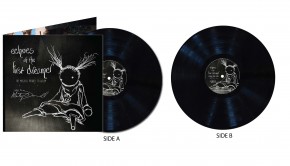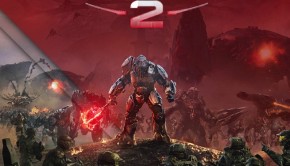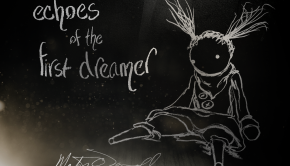Marty O’Donnell Interview: Kickstarting New Ventures
Marty O’Donnell is one of the most iconic names in game music, with a musical tradition established in the Halo series that has spanned over ten years, and a unique career highlight working with Paul McCartney on the epic score to Destiny. After his departure from Bungie, O’Donnell went on to found a new game company called Highwire, which has been advertising its debut game, Golem, set to be released on the Playstation VR later this year. Along with the game, O’Donnell began a Kickstarter to fund a prequel album filled with music inspired by Golem, titled “Echoes of the First Dreamer.”
Today, Marty O’Donnell spoke about the process of moving from a Triple-A company to a much smaller one, founded from scratch and still in the process of creating its first game. While there have been some changes that he is still getting used to, O’Donnell has been approaching Golem with a fresh perspective but a similar vision, including a separate musical work meant to be listened to independently of the game.
When we spoke this morning, the Kickstarter was at $42,000; since then, it has surpassed its goal of $45,000. However, O’Donnell is still accepting funds to increase the album’s quality.
Interview Credits
Interview Subject: Marty O’Donnell
Interviewer: Emily McMillan
Editor: Emily McMillan
Coordination: Emily McMillan, Chris Greening
Interview Content
Emily: As of last summer, you’ve been working at Highwire, which is a company that you started with a friend. That’s a huge change from Bungie – how has it been for you?
Marty O’Donnell: It’s a huge change. It took a little while to get used to, because when I first started working there, it started off with this vague idea. Jamie [Griesemer] was a designer at Bungie for years; actually, I helped him get hired in the summer of 1999 in Chicago. We always got along really well, and I thought he was one of the best designers I’d ever worked with, so when he was free from his previous position working on Infamous Second Son, and I just got freed up from Bungie, so right away we said, let’s do something, let’s not dwell on anything, let’s do something new. But when we started – we met with Jared [Noftle], who founded Airtight games and he’s really smart, technical guy – technical meaning at he’s a programmer – and he has a lot of contacts at Sony.
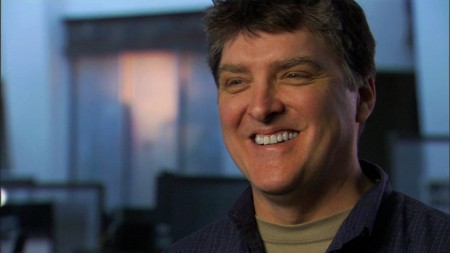
So we talked to Sony, and they gave us a cool six-month contract to do prototyping concepts for virtual reality. As we started finding people who we wanted to work with us, we found we were a distributed company, meaning we were on all these platforms – Slack, Squiggle, stuff I’m not used to. It’s why the tagline for the company is “Old dogs, new tricks” and I’m certainly oldest of the old dogs and the new tricks are pretty new, and the idea of not having a big building with the people in it, and infrastructure and support of a big company – instead doing things from my own house with my own studio and working online with these guys – it was all kind of a trip.
We now have a space down on Pioneer Square we got a year ago, and there are now 11 of us working there, but even with that, I don’t go in because my studio isn’t there. I go periodically and the rest of the folks are there working, but everybody has the ability to work from home and get online and get online and be a part of Perforce, which allows us to work on our own sections of the game without screwing up any other sections. [laughs]
It was interesting – for example, I got to meet with the developers of Ori and the Blind Forest at the Game Developers’ Conference, and got to meet with Gareth Coker – super nice guy. Everybody was standing around talking, and he said something like, ‘This is the first time the entire Ori team was in the same place at the same time.’ And here they did a really successful game in a worldwide distributed model, and they were all in their separate places working in their separate times, and I don’t know how they got together, but that seems to be the way people are working, especially in the indie scene. It’s very new and inspiring to me.
Emily: It definitely seems inspiring to be able to go to something like GDC, and see a company that’s done a game the way that you’re doing now, and see it be wildly successful. It’s different, but now you know how possible it is.
Martin O’Donnell: You’ve taken the words right out of my mouth! It really was, there was some fear and trepidation I had going into – well, let me put it this way. There was a certain amount of support and infrastructure and size that I was comfortable with at Bungie. It got to a point where it seemed unwieldy for me. It was very big, and hard to make decisions that stuck. There would be decisions I’d get behind, and then the decisions that were actually implemented…
Emily: You’ve said in a few different places how important it is for you to not just be a composer, but an audio director as well.
Martin O’Donnell: Yeah, I’m actually the audio director, and I’ve always wanted to be the audio director of any project I’m working on. Fundamentally, I’m a composer, but I’m also very interested in the final audio product. I feel like the best way for music to work is for someone who’s extremely close to the music, audio, and voiceover to be making the decisions about the final mix. In the film business, that’s not the composer, and it’s not even the sound designer. I’ve always thought that if I could be that person – like the art director, or the creative director, I could have the vision for the final audio – the music, the voice, sound effects – and I can basically give it my best shot and say, this is how the audio should be experienced. That is a bigger job and has more responsibility than composers normally get.
Emily: Has the amount that you’ve been working as an audio director changed from Bungie to Highwire?
Marty O’Donnell: The only thing that’s changed is that I ended up having a crew of audio editors and composers who reported to me while I was at Bungie – about twelve people! And that was just on the audio team. Now I’m down to my studio in my house, and there’s a total of eleven people in the entire team at Highwire. The entire team is smaller than my audio team was! But in terms of my responsibility – I always felt like I was responsible for all the audio in Bungie games, even though I didn’t create all of it. If someone said, that was really great, then I would say, ‘Yeah, I’ve got a great team,’ but if someone said, ‘I didn’t like the way this audio worked,’ then I would say, well, that’s my responsibility. Now, not only am I responsible, I’m doing everything again. If you do or don’t like the footstep, I would say, I made that sound, and it’s my responsibility – and now I have to go to the sink and clean my own coffee cup. I like it, it’s more fun – everything is heightened. Everything you do, every decision you make is actually the thing – it’s all going to be noticed.
Emily: I was imagining that it’d be nice to not have to constantly be living up to a massive tradition, too. You’re on completely uncharted territory – new game, new company, new console…
Marty O’Donnell: It really is, and the thing that people hadn’t known about me – I love what happens with new technology, and new game designs. That’s one of the things that excited me in 1999 and 2000, when we were making games for the Xbox as a console, and this idea of a console in your living room that would give you an experience that would rival the production value of movies. It didn’t start off like that, but you could see games take that direction – have a Dolby theater in your living room, playing a game on your big screen tv. There was a lot of new technology and game design to make that a reality. I’m always wondering what the next new thing is, and Jamie is like that, too. He said, ‘Marty, if we’re going to do anything new, and be new era pioneers, it’s going to be VR,’ and I said, ‘Okay, let’s do it!’
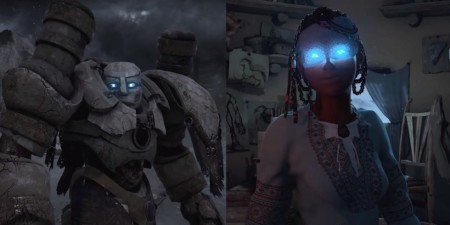
Emily: So was it Sony or Jamie who pushed you more into doing something for the PS VR?
Marty O’Donnell: Well, the first thing we said was ‘Hey, let’s work together and start a game company’ – we wanted to make a company that makes games. So then we needed to know what we were going to do first. How were we going to get the company off the ground – where could we make a big impact? VR was that place. I’ve known Jason Rubin for a while – he’d just gotten the position of head of games and Oculus Rift when we were starting to talk about making a game company, so we told him, and he was excited. If it had been possible, we might have done a deal with Oculus right at the beginning, but it just didn’t seem like the stars had aligned yet. He was still trying to get his own feet under him, to find out what games on the Occulus were going to be about. But Jamie had some good connections with Sony and the Morpheus, and we talked to them and they were the ones who said, yeah, we want you to help us make Playstation VR games.
Emily: So then you came up with Golem?
Marty O’Donnell: Yeah! Jamie’s like this idea machine – he had this giant document full of seventeen different ideas, and Golem was one of them, and we fleshed out a few small ideas in just a prototype way to see what kind of things work. By the end of the six months, it became clear that Golem was the coolest of the ideas, and so Sony picked it up and said, okay, we want you to make a full game out of it!
Emily: How did you come up with the idea to do an independent album – a musical prequel to Golem?
Marty O’Donnell: Well, that actually came from an idea about four….wow, what year is it now?
Emily: I think it may be around 2016?
Marty O’Donnell: [laughs] Yes, you’re right! So yes, four years ago, that was when we were working on Destiny, I looked and I saw that there were going to be a lot of PR and marketing requests, and even inside Bungie studios, you have a lot of need for music as you’re developing a game. Destiny had a long way to go, and there weren’t really that many musical ideas floating around yet. We really had to walk away from whatever it was – at least ten or eleven years of Halo production. Even I was thinking – we had to get rid of the hold music on the phone, which had Halo music. We’re no longer working on Halo, and we needed to look forward, and then Destiny needed a lot of new music. So the idea was put forward, how are we going to get new music for Destiny, and usually I’m inspired by encounters in the game, or marketing, or trailers, or something. But at that point, we didn’t have a big plan for a lot of the stuff, so I said, let me do an hour of new music and themes, just for the sake of listening to music. Something that would be reflective of the music of Destiny.
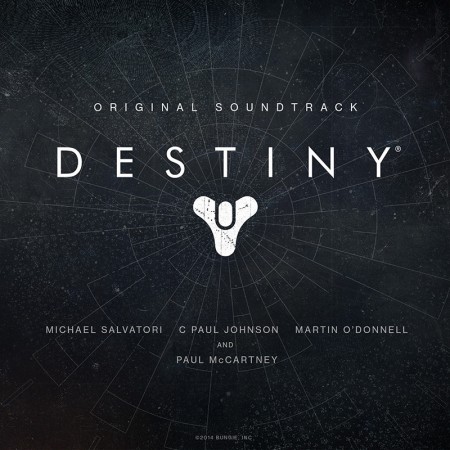
That’s where the concept of a musical prequel came up – “Music of the Spheres” – I came up with eight movements, a lot of the basic themes. I was able to get Mike Salvatori, my writing partner, to be hired at Bungie, about six months into it, so he came to Chicago, started working with me. We also got Paul McCartney to be interested in it. For the next two years, Mike and Paul and I were all working together on Music of the Spheres. I’ve said this a few places – It was one of the highlights of my career, working with Paul at Capitol Records, at Avatar Studios in New York, two times at Abbey Road in London, it was just amazing. I think that our final product was really one of the best things I have ever worked on. Circumstances outside of my control – the promised release of Music of the Spheres as the prequel to Destiny never happened. So once Jamie and I started working together, he heard Music of the Spheres, he said it was too bad it was never released, and suggested doing the same concept with Golem. At first, I kind of laughed a little bit, because we didn’t even have close to the same budget with Golem – 104-piece orchestra, 44-voice choir, and a boys choir in London at Abbey Road with Paul McCartney and his band…
Emily: Yeah, pretty hard to follow that up!
Marty O’Donnell: But, I liked the idea of music that people can listen to before they buy the game! It’s music that I’m writing sort of from a different place, because I’m thinking about people listening to it rather than it functioning to accompanying a game. that doesn’t mean I’m not going to use the themes in the game, but I don’t know where they’re going to be used in the game yet; I’m writing based on people listening to music, so it’s a different place to be, and sort of exciting and scary at the same time.
Emily: It’s hard not to relate the current Kickstarter project to Music of the Spheres – they’re very parallel, in a lot of ways. They’re both musical prequels, independent works, something related to games, something that you’re definitely wanting released…
Marty O’Donnell: You’re right about that, and frankly the Kickstarter is the thing that – because it’s in my control, nobody can tell me, no, you’re not releasing this. That’s my trump card now, is that I can say, hey, this Kickstarter is funded, we’re releasing this thing! There’s no publisher, no board of directors, nobody who’s going to say, well, no, we’ve decided to change plans.
Emily: Okay, I know you get this all the time, but I absolutely have to ask – should I still be holding out hope for Music of the Spheres?
Marty O’Donnell: You should absolutely hold out hope for that! I have tons of hope that it will come out. I honestly do not see any reason why it wouldn’t come out – I have no ability to control that, or the timing of that, or anything else. I have a hard time believing that – I mean, it exists. And as a matter of fact, there’s somebody online who was able to, through a lot of detective work, come pretty close to putting out a tracklist of the stuff that’s out there. It’s not that far off – I sent a message to him saying, wow, good job, and someday you’ll know how close you came!
Emily: I haven’t heard that!
Marty O’Donnell: You should check it out – it’s on Soundcloud. I was very impressed with what he did. It’s not completely right, but he’s got the track names, he matched the themes, he got stuff out of the soundtrack, the game, out of commercials and trailers, and it’s pretty good! It’s not what I want to have released – I have the correct version that I hope everybody hears at some point, and I certainly hope that will happen sooner rather than later.
Emily: When I was reviewing Destiny, I remember getting a note from someone at the site reminding me to talk about Music of the Spheres, which I didn’t know about at the time, so I was looking it up and kept thinking, ‘oh my god, where is all this music that’s missing from it’?
Marty O’Donnell: The interesting thing is, Mike, who got hired by Bungie, is still there – we’re still friends and everything. When he put the soundtrack together – I wasn’t there anymore – Mike was in charge of assembling the soundtrack, and he excerpts from Music of the Spheres on the soundtrack, and it’s called “Excerpt from Music of the Spheres,” and in the game, the entire credits list had Music of the Spheres listed – the conductor, orchestra, players, and so on – so it’s all of these signs that shows how close it is to a release, so it’s frustrating. I don’t understand the logic of not releasing it. It’s frustrating for the fans, and it’s already out there…
Emily: That’s what confused me at first – I had to do some research, because it’s listed on the soundtrack and the game, and some of it’s on the soundtrack, it’s already recorded, but it’s just not actually released. What was it like working with Paul McCartney?
Marty O’Donnell: That was amazing. I never thought in my wildest dreams I’d ever be working with Paul. He’s a personal hero of mine, and of Mike’s….I grew up listening to the Beatles, and considered Paul to be one of the icons of the music business. So when we got to work with him, the most important thing for me was that it still needed to be a creative collaboration. I thought, if Paul just wants to dip his toe into the game music business and create some music for a game, that would be fine. We could show him a bunch of ideas, have him help us flesh them out, and use them in the game. But it’s funny – I didn’t go to Paul to work on Music of the Spheres, I was already working on that when he came into the picture. During one of our first meetings, I described what I was doing, and played some of it just to paint a picture, and he got really excited about that.
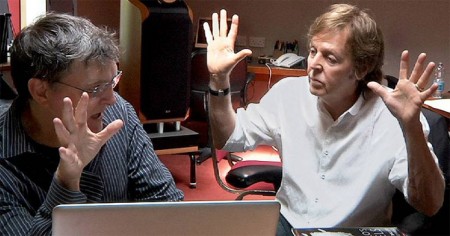
Eventually, after sending us some of his initial ideas and we’d written back, I had a session with him at Capitol Records in L.A., and he said, ‘I like some of what you’re doing, but why don’t you put some of it in your Music of the Spheres project?’ and it’s funny, because I’d heard him say at our very first meeting when we were talking about music and collaboration in general, and he shared some sort of story where he’d been working on music for a film, and they’d brought in another composer and he was kind of shocked by it, and he’s like, you know, if I wanted to collaborate, I’d collaborate with Bob Dylan, or one of my other friends, and I was like, okay, I get it! [laughs]
But I learned that he wasn’t telling me that to scare me off, but that was still in my head. So I said to him, I’m not sure which way you want to go, are you interested in collaborating? You’re one of the most famous individual artists of all time – do you want to do your own thing? I’m okay with that too. And he said, no no, I love it when you take some of my melodies, and mix it with your music, and it becomes our music. That was the breakthrough moment, because I needed to get to a point where I felt that Paul trusted me, and then that I believe that what we would do together would be better than what we would do individually.
Emily: How cool must that be to have someone – this huge musical legend – and find out that you actually work really well with them, and they want to work with you on a project!
Marty O’Donnell: Yeah. Yeah, it was – that moment is just seared in my brain because it was so wonderful. I was nervous up until that point – how were we going to work together, and what did he want to do? He actually said, ‘Hey Marty, there’s no cameras, no other people, you can do whatever you want!’ So it was just this great feeling – he was just another guy, another composer, and I think that’s the secret to his longevity, and creative brilliance, is that he doesn’t see himself as this icon, but as a regular guitar player, songwriting composer, and he loves working with music, and he puts people at ease really fast.
Emily: That’s fantastic.
Marty O’Donnell: Yeah, it really was.
Emily: With Golem, did you set out with any musical ideas about what you’re going to do differently after Destiny, or is it just another project?
Marty O’Donnell: The good thing is that we did have to come up with a trailer, so you’ve probably seen the trailer –
Emily: Yes!
Marty O’Donnell: So there’s this story being told in the trailer, and immediately I’m trying to score the emotions that I’ve seen, it’s about a girl who’s confined to bed, and in this mysterious place, and there’s this giant stone monster, and I scored what I saw, and it gave me some themes that just sort of put me in a different space. It’s a more intimate story, there’s almost this mother’s lullaby happening in the beginning, and a magical feel with the Lydian mode that I’m using, and then after this Jamie said, you know, we should do this whole album on the musical prequel to Golem. I’m going to be basing it on that initial concept of, I don’t want things to get huge and bombastic and saving the galaxy kind of music – I want it to be intimate, and there’s going to be some evil, and a mysterious magical ancient city, so there are a lot of places to go – but overall, the style’s going to be a little more contained….a little more Satie than Wagner.
Emily: [laughs] That’s already quite different from Halo and Destiny!
Marty O’Donnell: Yeah! It is!
Emily: You mentioned live musicians in your Kickstarter campaign – does that mean we should expect a live score in Golem, as well?
Marty O’Donnell: Yeah, certainly as many live musicians as I want or need. There are times where I happen to the like the sound of cool samples or synth stuff, but when it comes to performance of anything that requires real instruments, or really calls for a live musician, certainly I’ll be using them.
Emily: Okay!
Marty O’Donnell: If that makes sense – it’s hard for me to explain sometimes – this goes all the way back to Mellotron strings, which has its own amazing, creepy sounds, so sometimes you just want the sound of Mellotron strings. But when you want a live orchestra, you can’t beat having an actual, live orchestral players playing for you.
Emily: That’s a good distinction to make. I’ve started noticing the difference between a good quality synth score, where it’s written specifically for those sounds, and – for example, there’s one soundtrack I’ve been listening to a lot recently with one gorgeous piano piece in particular that I just love. The piece is very clearly written for a live instrument, but it’s not played on one, and the difference between the attempted sound and the achieved sound is, to me, pretty noticeable. So in that case, I get the impression that the composer was not able to use live instruments and wanted to make a live score in spite of that. Whereas you’re saying that sometimes, you really just want those VST sounds.
Marty O’Donnell: Yeah, and it’s a personal aesthetic choice. Sometimes I’m going for a certain sound, and I like how it sounds in my studio, and other times I think, nope, I’m mocking this up, and I’ll go and find real performers for this on real instruments. I like to have the freedom to make those choices on my own.
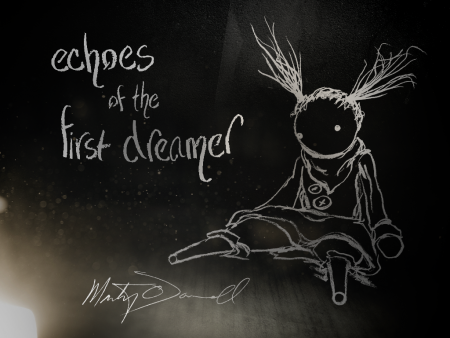
Emily: How’s the Kickstarter process been going for you?
Marty O’Donnell: [laughs] Well….we sort of jumped into the Kickstarter without really knowing much about how it works, and…it’s working pretty well. I noticed this morning, we’re at…
Emily: Last I checked, you were at $42 or $43…
Marty O’Donnell: Yeah, I think we crossed $43,000 before this, so we’ve got about $2,000 left. It’s been amazing, because when you have a big studio of about 700 people, there’s a whole wing that’s devoted to community relations, PR, marketing – if you’re tapped to go do an interview, then you go do it – but you’re not even thinking about the possibility of having to push for that stuff. Now that there’s this small little studio, we’re like, wait…how are we going to market this? None of us have that as a part of our former jobs, so I’ve been doing a lot of that on my own – a lot of talking to people, and Tweeting…it’s been a slow grow thing. For some reason, I thought, I have a bunch of Twitter followers, I’ll just tweet one time and it’ll be funded! And then I realized…that’s not actually how that works!
Emily: I saw a lot of podcasts and interviews! And you made some comment about how if everybody who downloaded a copy of Halo contributed a dollar, it’d be over in two seconds – it definitely seems to be a different fanbase you have to be appealing to now.
Marty O’Donnell: Yeah, and I guess it really made me realize how many times Halo had been downloaded over the past few years, and I’m trying to figure out, okay, who is the fanbase for this music? It made me wish I had everybody’s email, so I could just write it and say, hey, how about kicking in a buck?
Emily: It seems to be going well, though! Just over the last couple of days, it’s gone up about $5,000, so you don’t have much left!
Marty O’Donnell: Yeah, and I appreciate you interviewing me today and talking about it – I love doing interviews and talking about the new company and Golem, and I really want to push this Kickstarter too, so….I will stay as accessible as people want.
Emily: The more I get into game music, the more apparent it is to me how much fans love when composers are accessible and do stuff like show up at conventions, chat with fans, and so on – people really gravitate towards that.
Marty O’Donnell: I appreciate it! And sites like yours are important because they’re highlighting the actual creative people behind the products. People wouldn’t love the games and the music if there weren’t creative individuals behind the project who had the vision and the creativity. Sometimes you work for publishers who seem to have this feeling that fans are fans of…the publisher. The movie business doesn’t work like that – nobody says, I can’t wait to see the next Fox picture, or the next Universal Studios picture – they say, I want to see the next George Lucas film, or the next John Williams score – certainly there are teams involved in all of that, but fans are interested in the people who create, not the people who put up the money. That’s just a fact.
Emily: That’s an important distinction to make with games, because I think people are still in the process of realizing that.
Marty O’Donnell: Yeah, and I think – when I got into the game business, that there is this almost-purposeful suppression of exposing who the individual creators are to the public. I’m not really sure why that is – I never went along with it – but I’ve seen it in other things, where I don’t even know who the lead designer or creative director is of certain games, but it just comes out of the studio – but it’s never like that. There are the creative vision holders in each studio who do their work, and they should be stars just like directors and actors in the movie business. The fans want to know who they are, and anything that promotes that is a good thing.
Emily: Is there anything else you would like to say to readers of our website?
Marty O’Donnell: Go to the Kickstarter! Back “The First Dreamer”! Other than that…I just want to say thanks to the fans who have enjoyed games and music that me and my buddies have worked on in the past…thanks for joining us on the ride of the new adventure that we’re on right now. I really am thankful that people have gone out of their way to find out where we are, and what we’re working on.
Posted on April 10, 2016 by Emily McMillan. Last modified on December 2, 2016.

